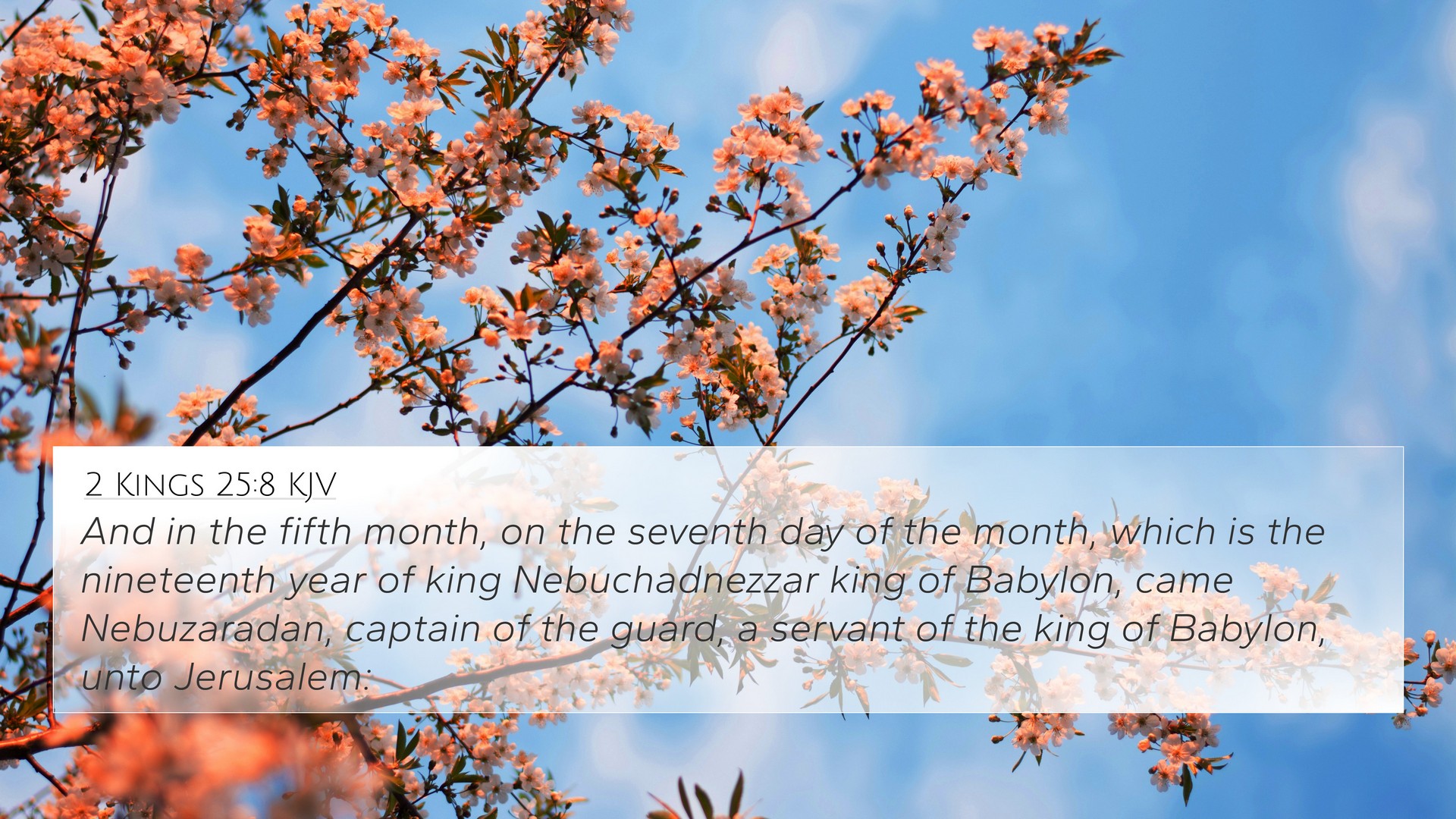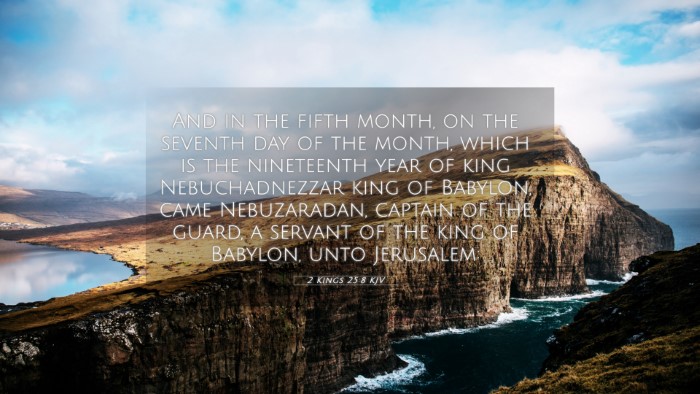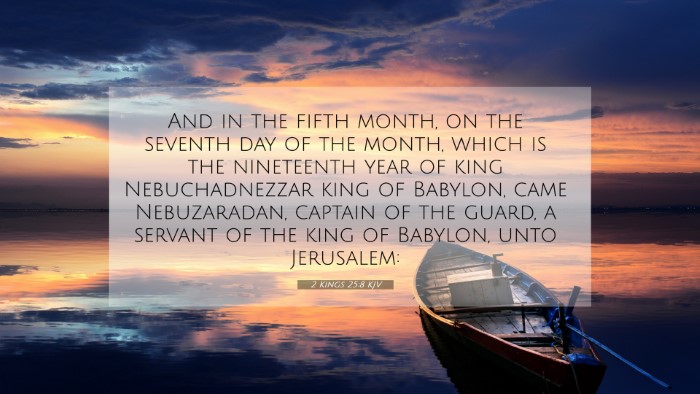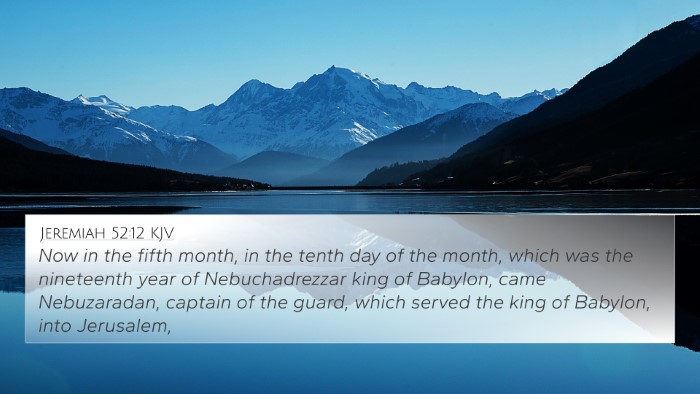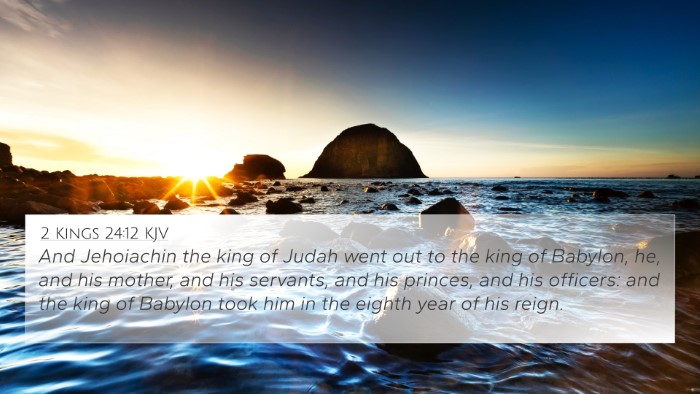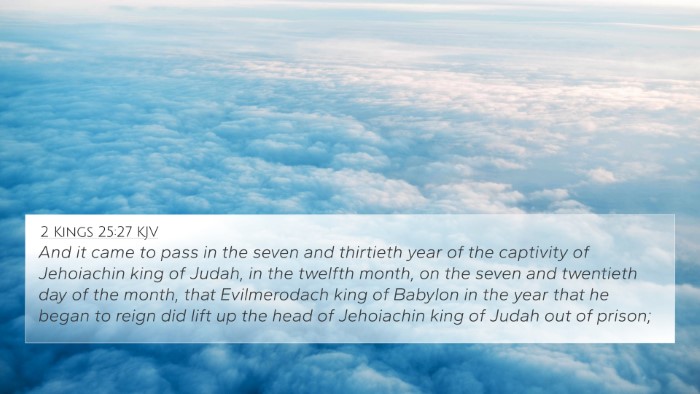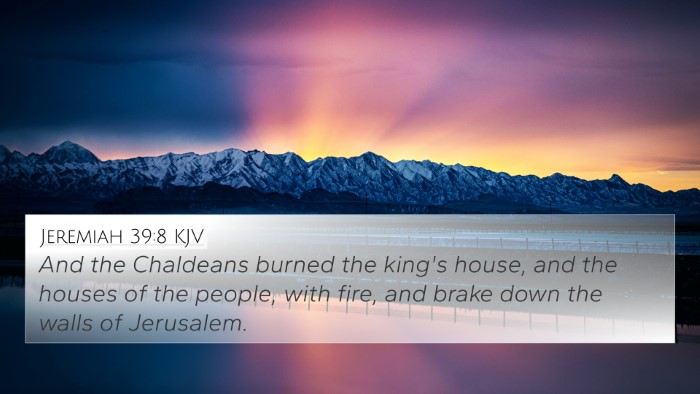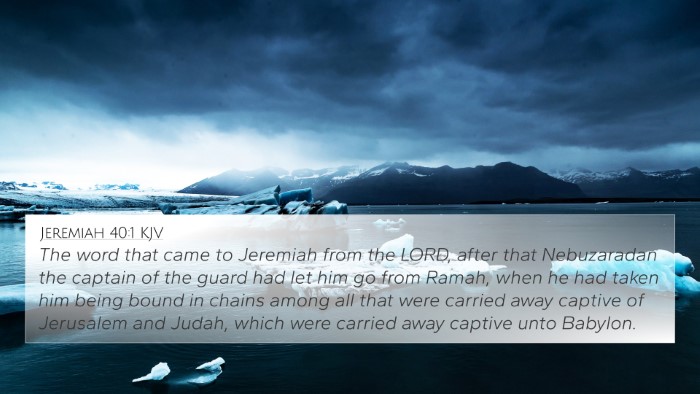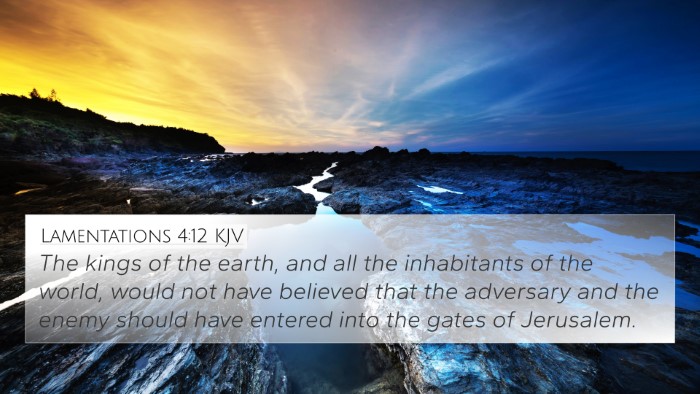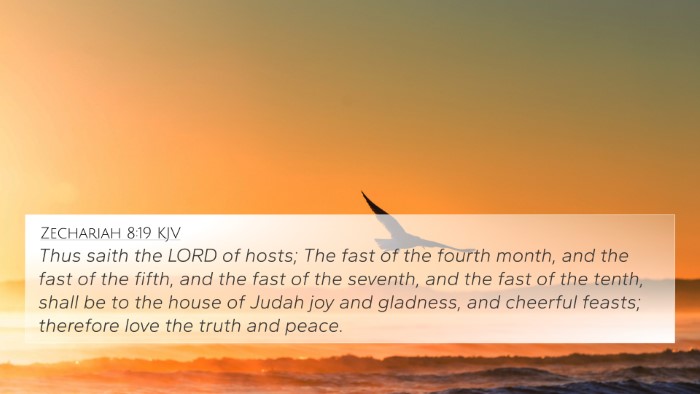Understanding 2 Kings 25:8
Verse Overview: 2 Kings 25:8 states, "And in the fifth month, on the seventh day of the month, which is the nineteenth year of king Nebuchadnezzar king of Babylon, came Nebuzaradan, captain of the guard, a servant of the king of Babylon, unto Jerusalem." This pivotal verse marks a significant moment in biblical history reflecting the fall of Jerusalem.
Meaning and Significance
This verse encapsulates the moment of Judah's demise, symbolizing God’s judgment upon the nation due to their persistent idolatry and disobedience. The narrative emphasizes the sovereignty of God allowed Babylon's conquest as an instrument of judgment.
Contextual Background
- Historical Setting: The event takes place in 586 B.C., encapsulating the last breaths of Jerusalem as a pivotal city.
- Prophetic Fulfillment: This corresponds with prophecies found in Lamentations and Jeremiah, affirming the prophetic declarations of judgment upon Israel.
- Character Analysis: Nebuzaradan’s role signifies God’s use of a foreign power to execute divine judgment, showcasing a non-Israelite fulfilling God’s will.
Thematic Connections
The verse connects deeply with themes of judgment and restoration. It highlights God's ultimate authority over nations and His unwavering commitment to justice.
Related Bible Verse Cross-References:
- Jeremiah 52:12-13: A similar account of Jerusalem’s destruction by the Babylonians.
- Lamentations 2:20: A lamentation reflecting on the desolation of Jerusalem.
- Ezekiel 24:2: The prediction of the siege of Jerusalem, establishing God’s foreknowledge and control over events.
- 2 Chronicles 36:17-19: A parallel account of the Babylonian conquest and the role of the temple's destruction.
- Isaiah 39:6-7: A prophecy regarding the Babylonian captivity of Judah’s descendants.
- Daniel 1:1: The beginning of Babylon’s conquest featuring Daniel’s introduction in the royal court.
- Matthew 24:2: Jesus references the destruction of the temple mirroring historical judgments.
- Revelation 18:2: Symbolic destruction that recalls themes evident in the fall of Jerusalem.
- Hebrews 10:31: "It is a fearful thing to fall into the hands of the living God," displaying God's pronounced judgment.
- Micah 3:12: Prophecy reflecting Jerusalem’s eventual destruction due to disobedience.
Insights from Public Domain Commentaries
Matthew Henry: He explains that this verse not only captures a historical event but serves as a warning of God’s judgment against continued sin. The fall of Jerusalem signifies a pivotal point in God's covenant relationship.
Albert Barnes: He suggests that the mention of specific dates highlights the importance of this event in prophetic history and serves as a stark reminder that God’s word will always come to pass.
Adam Clarke: He focuses on the character of Nebuzaradan, noting that God’s purposes are fulfilled through unlikely agents, emphasizing the theme that God utilizes earthly powers to accomplish divine plans.
Application and Reflection
Understanding 2 Kings 25:8 invites readers to reflect on their own lives, urging them to recognize the importance of obedience to God. It serves as a reminder that neglecting divine commands can lead to dire consequences.
Tools for Bible Cross-Referencing
- Bible Concordance: Essential for identifying terms and concepts that link verses across scripture.
- Bible Cross-Reference Guide: A systematic approach to connections between similar themes and events.
- Cross-Reference Bible Study: Methodologies involving thematic studies across different books of the Bible.
- Bible Chain References: Techniques that help in forming strong links between different books and authors.
Conclusion
In summary, 2 Kings 25:8 stands as a crucial point in biblical narrative, stressing the importance of understanding scripture through the lens of God’s overarching plan for humanity. By engaging in comparative Bible verse analysis, individuals can glean profound insights into the nature of God’s interaction with His people.
By exploring its connections, we witness the coherence of the Biblical narrative and how it offers warnings, hope, and instruction for all believers.
